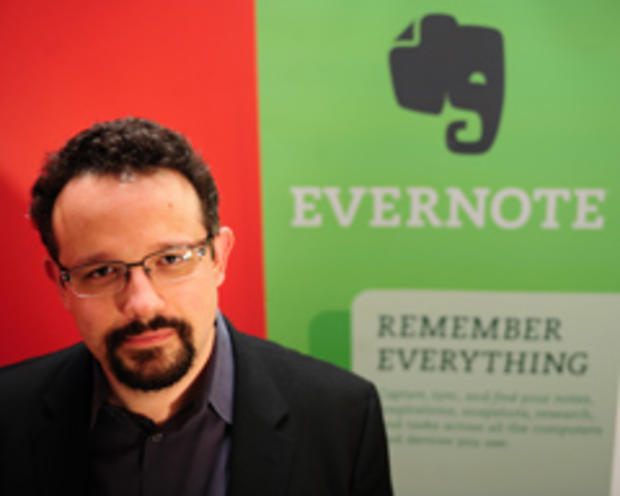Suddenly Starting a Business Has Become Really Cheap
Sphere's success inspired Conrad to return to his roots as a venture investor and keep percolating his own ideas. In late 2009, he had an idea to offer consumers a single Web page where they could bring together their online identities. The business, called About.me, was no less ambitious than Sphere, but it required less money. Conrad raised just $425,000, which proved plenty. The service scored early adopters and hundreds of thousands of people signed up. This past December, with About.me barely a year old and still not officially launched, Conrad sold it, also to AOL. The price, according to a person familiar with the transaction, was more than $20 million.
What was the difference between 2005 and 2010? Why was Conrad able to build a company so much faster and for so much less? It boils down to one thing: "Access to the cloud," he says. "That's what made it possible to launch About.me in a fraction of the time and at a fraction of the cost."
Cloud computing has created so many powerful off-the-shelf services that entrepreneurs of all types can get businesses up and running in a matter of months and for little money. Everything from server space to accounting and banking services to sales and fulfillment can be purchased pay-as-you-go. And then you can use the big dogs of the cloud — Facebook and Twitter — to market in ways that didn't exist just a few years ago.
The impact, not surprisingly, is greatest among pure-play Internet companies. "A trend people don't fully appreciate," LinkedIn-founder and startup investor Reid Hoffman recently remarked at Munich's DLD conference, "is that it is now much cheaper and easier to start Internet software companies than ever before. Which means you have the profusion of thousands and thousands of them."
Yup, he said "thousands and thousands." And while that's making it harder for a business to get noticed, it also unlocks extraordinary possibilities.
The secret of cloud computing is its ability to offer bandwidth, processing power, and storage as a utility. It was pioneered by IBM for large corporate customers. But it's now filtering down to small businesses through companies like Amazon and smaller rivals like Rackspace and Tenzing, all of which provide flexible computing power as a service. Instead of buying servers or server space from a hosting company, entrepreneurs can purchase computing power that expands and contracts to meet the business's needs.
Buying computing power on a metered basis may seem like an obscure engineering detail, but it isn't trivial in the least. It's arguably the basis of an economic revolution. Think about it: Startups no longer have to build their own infrastructure or buy extra capacity to play it safe in case of unanticipated demand. That drives costs way down and frees up cash. As Adam Selipsky, the Vice President of Amazon Web Services, puts it, "Capital expenses become variable expenses."
That alone has led to the creation of those thousands of startups. Consider the social gaming phenomenon. A few coders come up with an idea, host it on Amazon's AWS, release it into the wilds of Facebook, and then sit back and see what happens. Those coders have no clue how their games will do, so they can't plan for the traffic Facebook might generate. The cloud solves that.
Or look at Evernote, a Silicon Valley darling whose mobile apps let users take and keep notes, voice messages, and images on multiple devices, courtesy of the cloud. Evernote's growth has been explosive; more than half of its 6 million customers signed up in the past year. The last million signed up in 52 days; the next million will come faster still.
Managing that kind of growth can kill a company. But Evernote pays for additional computing power only after it adds users and makes a sale. (Evernote has both free and paid versions). So incremental increases in costs are matched by a rise in revenues. That simple equation transforms a lot of businesses by making them more nimble and efficient. Lower costs reduce the risk of trying out new ideas, which encourages imaginative entrepreneurs to take more chances.
If Tony Conrad's About.me is anything to go by, the cost of starting a Web-based business is 12 percent today of what it was in 2005. Even if you assume Conrad's two successes were radically different — and therefore didn't have comparable development costs — an 88 percent drop in five years is impossible to discount.
That's a stunning number, and, to be fair, it's not all coming from cloud-based services. The other big factor is the open-source movement among software developers. In some ways, the two phenomena are intertwined. Both come from Silicon Valley's penchant for using resources in a different way, for making things faster, cheaper, better and for collaborating.
In fact, anything you build today is expanding upon the work of other software engineers done yesterday. The open-source movement has produced vast libraries of code that any talented developer has access to. Combine that with greater functionality at every level of the software stack — that's geek speak for the programming languages that interact with each other — and writing a new app is simply standing on the shoulders of giants.
Perhaps the biggest savings has come on the marketing front. Remember all of those floppy discs AOL used to shrink-wrap onto everything? Each one cost a little and all of them added up to a lot. Running print or TV ads is pricey too with no good way to track their efficacy.
Now there's Facebook and Twitter, where word of mouth spreads faster than creative campaigns ever could.
"So the days of saying, 'Hey, let's take out a Super Bowl ad for $5 million and hope that it catches on don't really need to exist anymore," says Daniel Klaus, co-founder of Appfund, a New York-based mobile incubator that supports developers creating businesses around smartphones.
That word-of-mouth marketing efficiency is even changing the way businesses are conceived. Instead of building a good enough product and papering over its limitations with a huge, sexy marketing campaign — *cough* Microsoft *cough* — consumer technology companies have to focus on making the absolute best products; sub-par products won't get any attention in the social sphere or, worse, they'll get the wrong kind of attention.
Evernote provides a great example of the evolving rebus that marketing and product have become. An astonishing 95 percent of Evernote users come from word of mouth with the remaining 5 percent coming from deals where the service is bundled with a hardware purchase.
That peer-to-peer publicity is the best because it is the most effective. Libin says that half of new Evernote users stick with the service after 30 days but three-quarters of those who were introduced to Evernote at the urging of a friend are still on board after a month. That's a huge differential, clearly showing value of social networking to a new business.
Your company doesn't have to be a software service or a cloud-based app to benefit from this transition to mobile computing. The benefits are everywhere, even at the Boulevard Brewing Company in Kansas City. The fundamental value in the cloud revolution is that the Internet's efficiency is becoming a level playing field open to everyone. And that's making it possible for anyone with an idea and some drive to give entrepreneurship a shot.
Read more:


